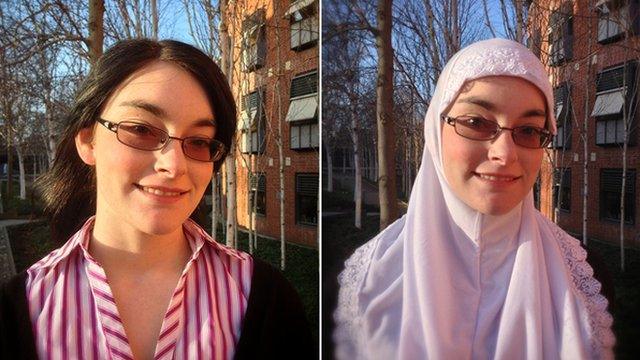French minister compares veil wearers to 'negroes who accepted slavery'
- Published
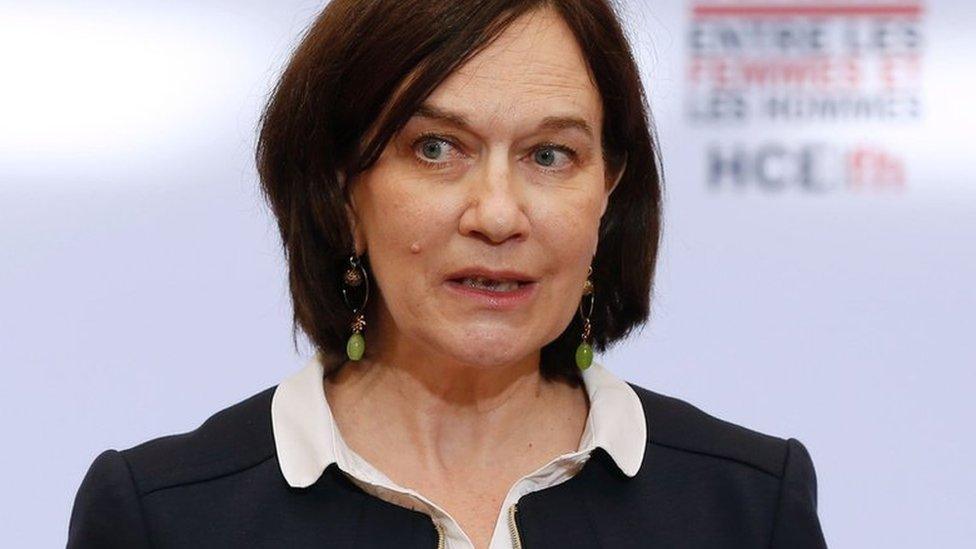
Laurence Rossignol has found herself at the centre of a social media storm
France's women's rights minister has sparked fury by comparing Muslim women who choose to wear the headscarf to "negroes who accepted slavery".
Laurence Rossignol appeared on French TV criticising fashion brands that market hijabs as "irresponsible".
She later said using the word "negro" had been a mistake, but insisted she had only used it in connection with the works of an 18th Century thinker.
Thousands have signed a petition for her to resign.
Ms Rossignol told Buzzfeed, external the word "negro" was no longer used except to refer to Baron de Montesquieu's writings on slavery.
But she admitted to AFP news agency that she had not foreseen the wider reaction and said the word should not be used "even when it is authorised in reference to slavery".
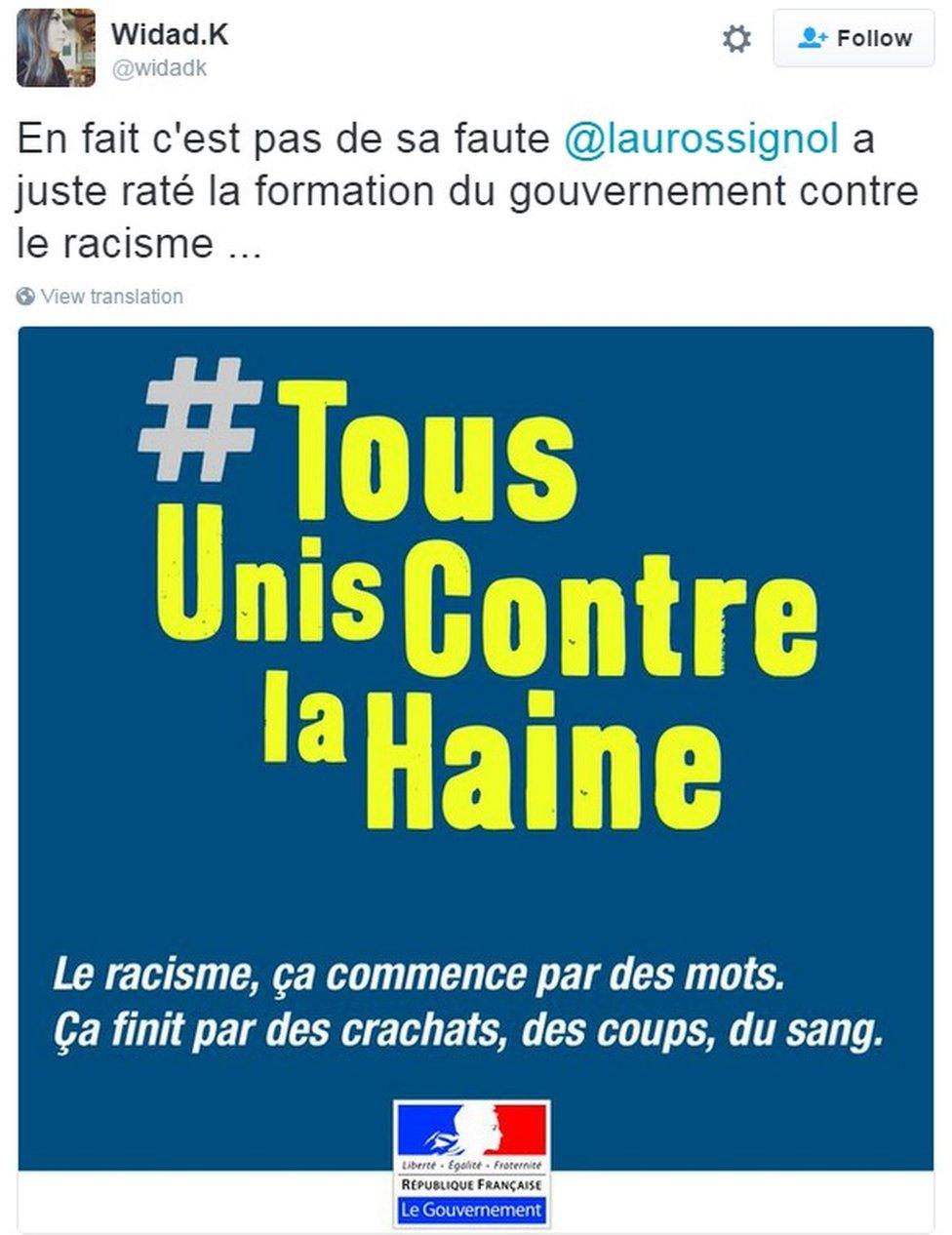
Widad says "the row is not Ms Rossignol's fault, she just missed the government's anti-racism training" and attaches a French government anti-racism message, which says "racism begins with words and ends in spitting, blows and blood"
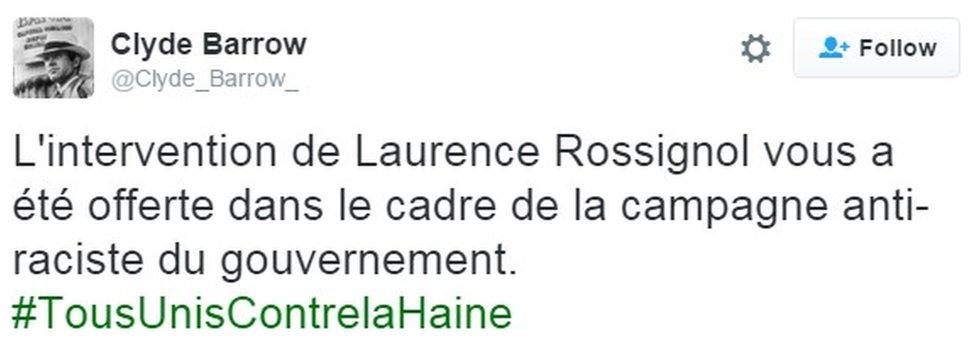
"Laurence Rossignol's intervention was brought to you by the government's anti-racism campaign"
Some social media users focused on this aspect of her comments. They quoted a government anti-racism message to mock Ms Rossignol, who was a founder of the French anti-racism group SOS Racisme, external.
Others expressed outrage over Ms Rossignol's portrayal of women wearing the headscarf as "consenting slaves".
The headscarf has long been a vexed issue in France, which defines itself as a secular society.
France has banned both teachers and pupils from wearing the headscarf in state schools, and public servants are also prohibited from wearing religious symbols.
It has also banned the full face veil, known as the niqab, under legislation that says nobody in a public space can wear clothing intended to conceal the face.
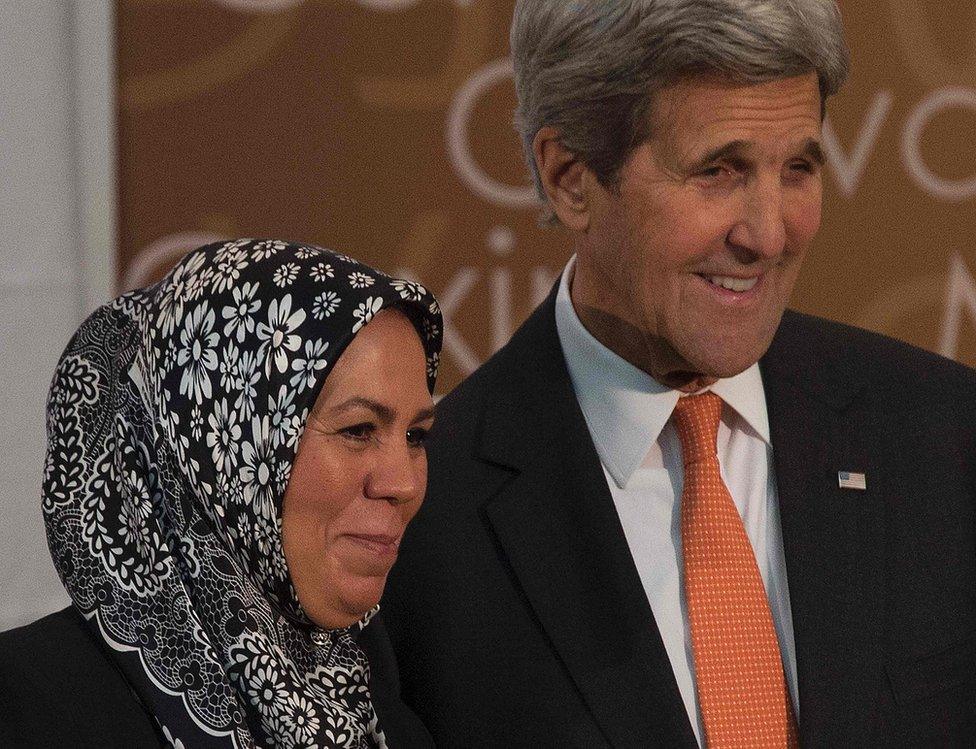

"So for Ms Rossignol this woman honoured in Washington yesterday is a 'negro' - a consenting slave"


"According to Ms Rossignol, Mariam al-Mansouri, who is risking her life to fight IS, is a consenting slave"
Twitter user Bembelly asked whether Ms Rossignol thought well-known headscarf-wearing anti-radicalisation activist Latifa Ibn Ziaten should be considered a "consenting slave".
Ms Ibn Ziaten began campaigning against radicalisation after her son Imad - a soldier - was killed by jihadist gunman Mohamed Merah in 2012.
On Tuesday she received a "Women of Courage, external" award presented by US Secretary of State John Kerry in Washington. Earlier this month she also received the French Legion of Honour medal from President Francois Hollande.
Others asked the same question with reference to headscarf-wearing Emirati fighter pilot Mariam al-Mansouri.
#Rossignolresignation
Some posters said Ms Rossignol's comments amounted to "state racism", while yet others expressed surprise that arguments were still raging over what women choose to wear.
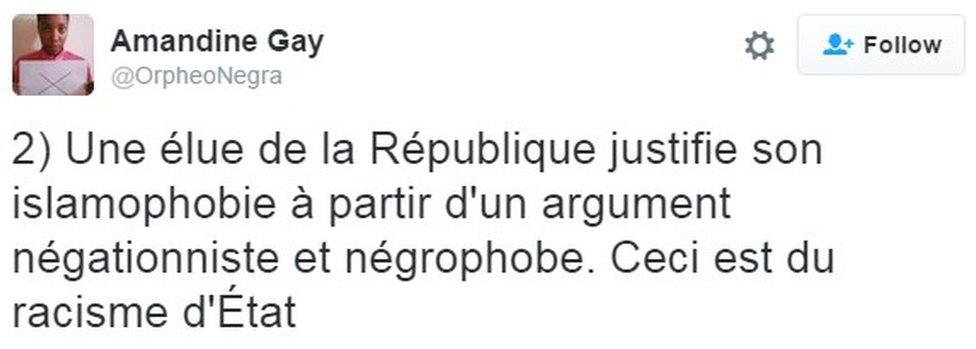
"An MP has justified her Islamophobia by using a revisionist and negrophobic argument. That is state racism"
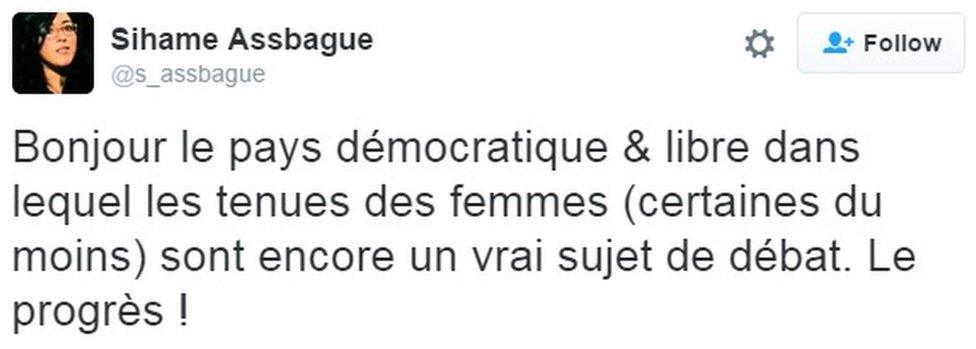
"Hello to a democratic and free country in which women's clothes (some, at least) are still the subject of debate. What progress!"
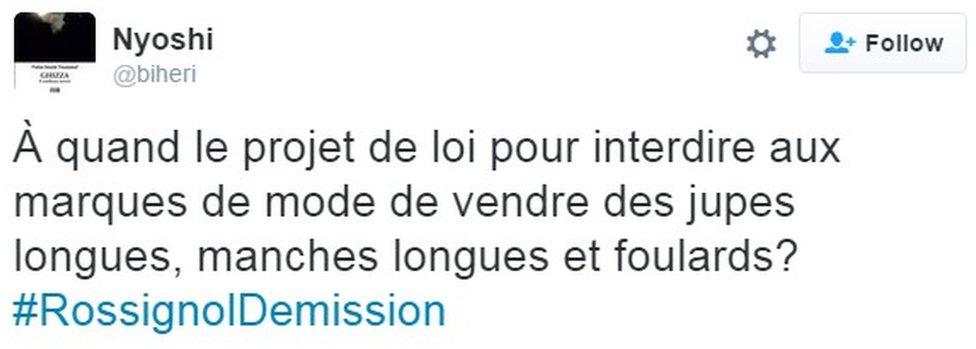
"Are we going to end up with a draft law banning fashion companies from selling long skirts, long sleeves and headscarves?"
Many social media users posted under the hashtag #rossignoldemission - "Rossignol resignation" - and a petition, external calling on her to step down gained thousands of signatures.
Islamic fashion
Ms Rossignol had been appearing on BFMTV to discuss the growing Islamic fashion market, external (in French), worth about $230bn according to some estimates.
She said the growing influence of a hard-line or "salafist" version of Islam in some communities in France meant that women were being seen less and less frequently on the street and in cafes.
Developing Islamic fashion products for the Western market was "irresponsible", she said, because it puts Muslim women who are being pressurised to dress more modestly "in a position where they have to wear it".
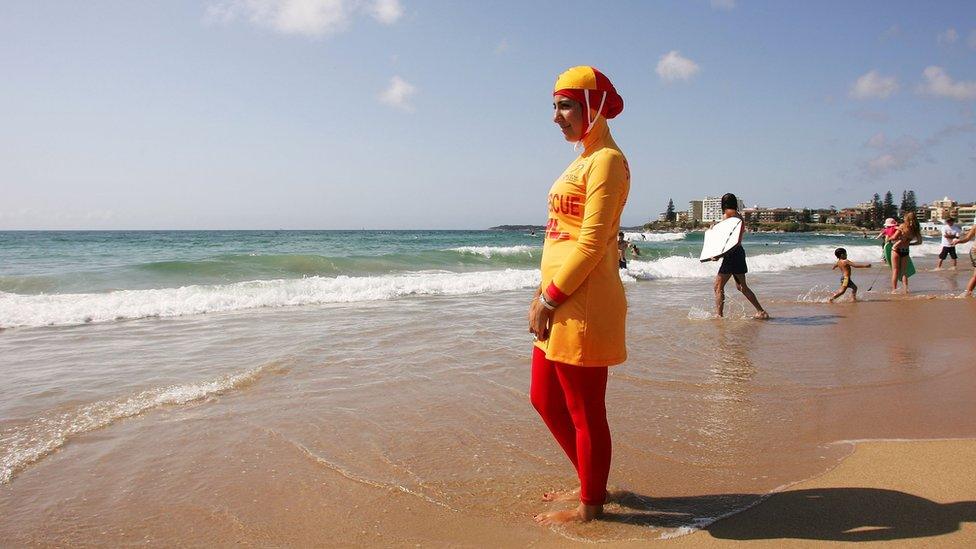
Ms Rossignol was criticising the development of clothing including burkinis - as worn by this Australian lifeguard
As the row grew, a former French fashion mogul, Pierre Berge, lent the embattled French minister his support.
Mr Berge told Europe 1 radio station that brands developing clothing aimed at Muslim women were taking part in the "enslavement of women".
He said fashion existed to "give women their freedom", not to collaborate with a "dictatorship" that he said sought to "hide women and make them live a hidden life".
"Renounce the money and have some principles," he said.
- Published18 November 2015
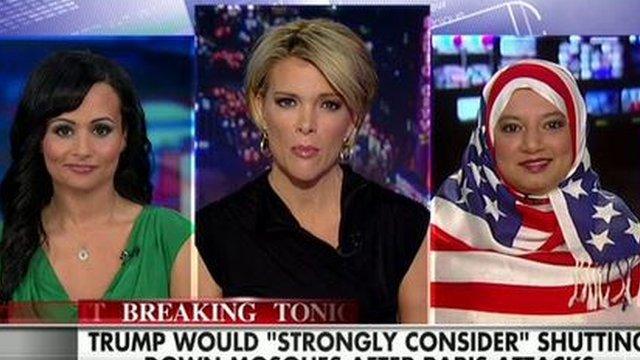
- Published30 September 2015
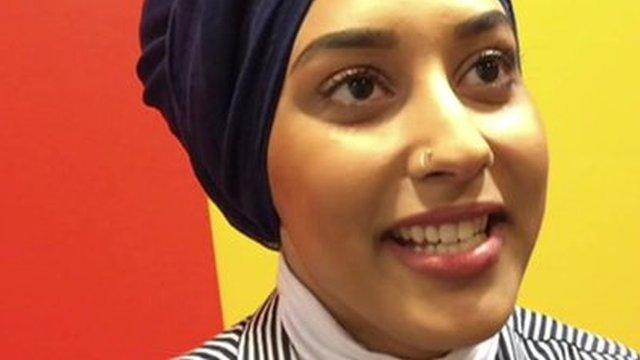
- Published4 April 2015
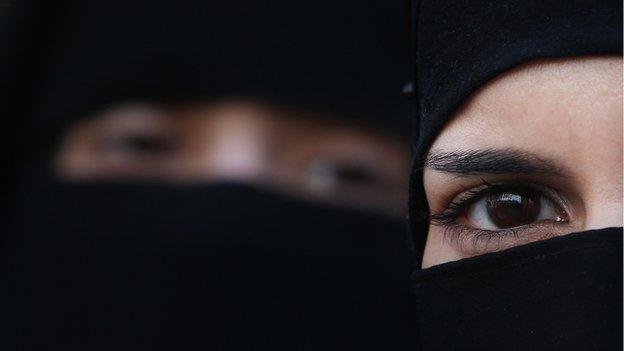
- Published1 February 2013
